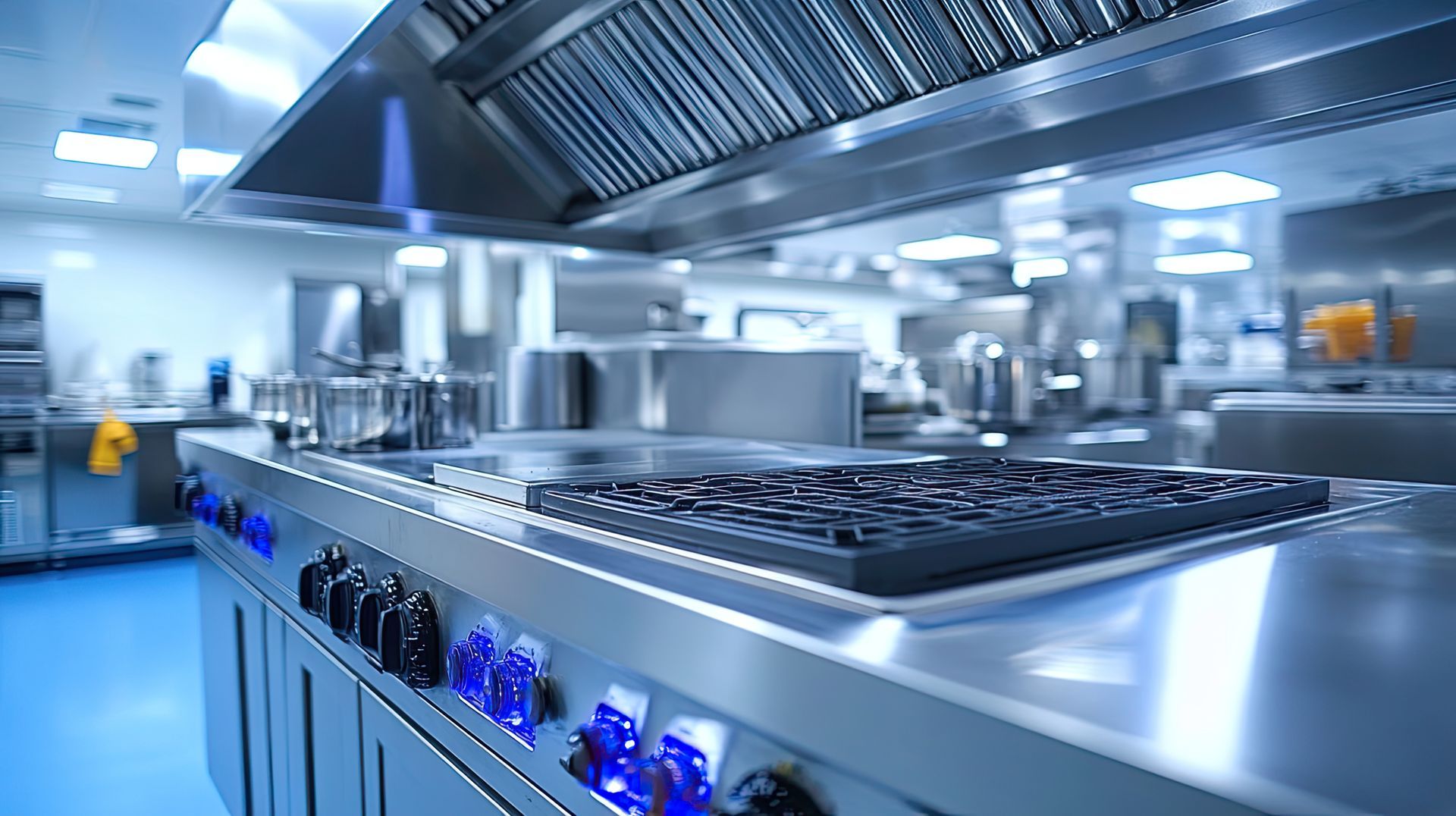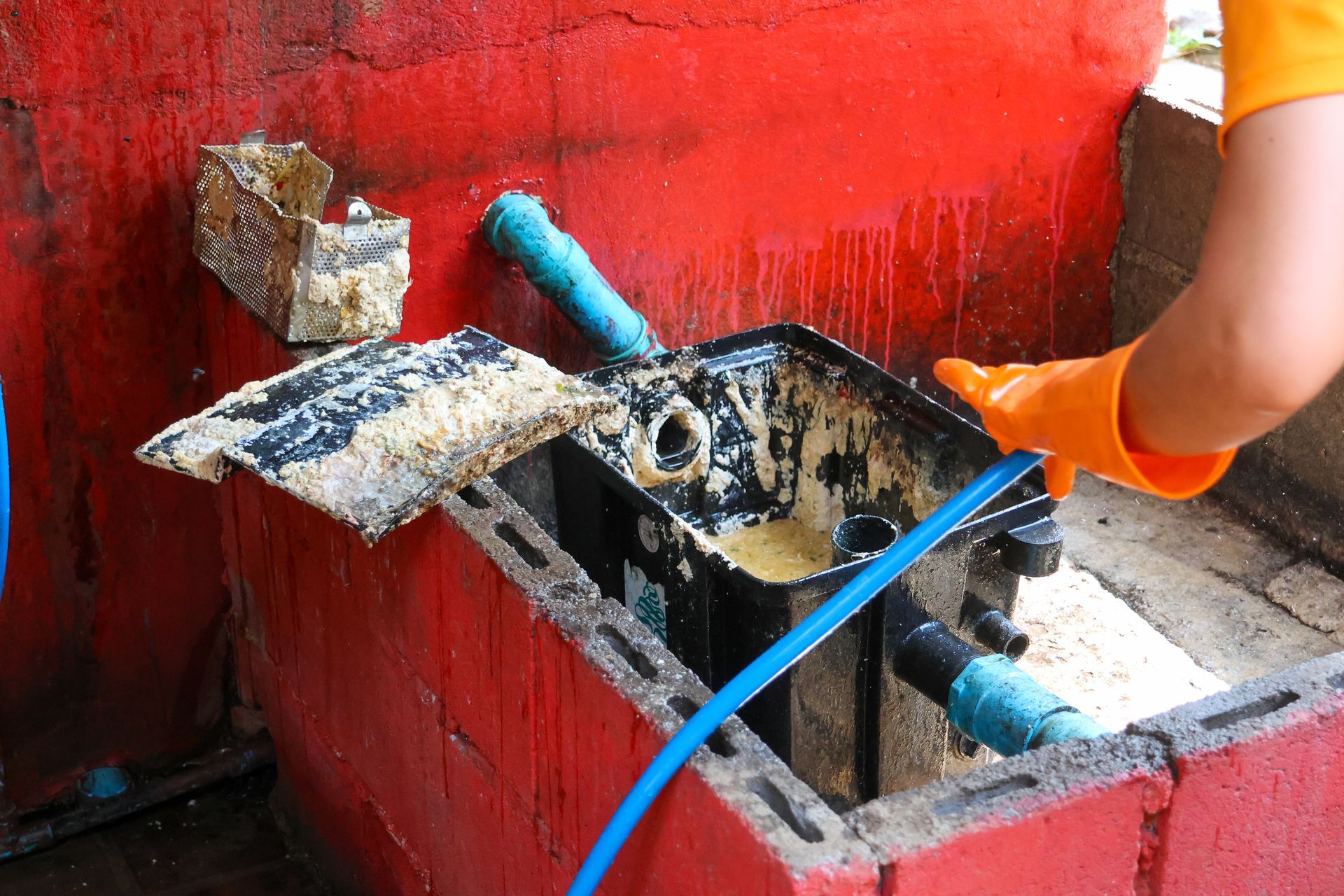What Happens to Grease Traps When Kitchens Operate at Half Capacity?

As summer rolls around, some commercial kitchens across Metro-Atlanta scale back their operations. But while reducing staff or kitchen hours may lighten the daily workload, it doesn’t reduce the burden on your grease trap.
In fact, when grease traps operate at half capacity or sit idle for long stretches, problems often get worse, not better. A grease trap that isn’t getting regular water flow continues to hold fats, oils and grease (FOG), which break down in ways that can cause odor issues, blockages and equipment damage.
Prolonged Anaerobic Conditions Lead to Stronger Odors
When a grease trap is used regularly, water flow helps oxygenate the system and flush out some of the separated water. But when operations cease and the trap sits still for days or weeks, the FOG inside begins to break down anaerobically without oxygen.
This anaerobic decomposition creates sulfur-based gases, which are responsible for that signature “rotten egg” smell. These odors can creep into kitchen spaces, service areas or parking lots if ventilation is poor.
In Metro-Atlanta’s humid summer climate, warm temperatures accelerate this breakdown, making it even more unpleasant.
FOG Hardens and Becomes More Difficult to Remove
Grease traps are designed to capture fats, oils and grease while allowing water to pass through. But when the water stops flowing, or slows down significantly, the FOG inside begins to harden and crust.
Without regular agitation or flushing, the grease clings to the trap walls and baffles, forming thick layers that can be time-consuming and costly to remove later. The longer it sits, the more it solidifies and in the heat of summer, that process speeds up even more.
Maintenance and cleaning after a seasonal or temporary closure can turn into an expensive, labor-intensive restoration job if the break is too long.
No Flow = No Separation
Grease traps work on a simple principle: separate the FOG from wastewater by slowing down flow. Grease floats to the top, solids settle to the bottom and clearer, FOG-free water exits the trap.
But when water isn’t consistently moving through the system this natural separation process stops. Particles that should float or settle may just sit and stagnate.
You’re left with a tank full of improperly layered waste, which not only reduces trap efficiency but can also increase the chance of FOG escaping downstream into your plumbing or the city sewer system.
Extended Inactivity Can Damage Internal Components
Many grease traps, especially larger outdoor interceptors common in school campuses, hospitals and commercial buildings, contain moving parts, sensors or rubber gaskets that help them operate efficiently.
When these components sit for months in a tank filled with hot, stagnant grease, they degrade faster than under regular use. Rubber seals can dry out or crack, sensors can fail and internal structures can corrode—all of which can lead to expensive repairs or replacements when the kitchen is ready to ramp back up.
Routine service during periods of low use is critical to preserve the lifespan of your trap and avoid surprise breakdowns later.
Restarting Flow Later Can Break Loose Buildup All at Once
A kitchen that restarts after months of being closed can suddenly experience a major blockage or backup not long after resuming normal operations.
Why? Because the sudden flow of water dislodges all the hardened grease and debris that’s been quietly building up. This sludge travels downstream and gets stuck in plumbing lines, causing backups—sometimes within days of reopening.
Preventing this means not just waiting for problems to occur but getting ahead of them with scheduled cleanings, even during quieter seasons.
Don’t Let an Unused Grease Trap Become a Serious Problem
Just because your kitchen is on a break doesn’t mean your grease trap can be forgotten. In fact, low or inconsistent use often leads to worse buildup, stronger odors and more maintenance headaches than regular use with scheduled service.
Schedule your summer service now by contacting us at (404) 419-6887. Southern Green Industries is committed to providing the most environmentally responsible professional grease trap cleaning, FOG removal and fryer oil recycling in Metro-Atlanta.
Recent Blog Posts
Contact us Today for a FREE Quote
We are committed to making grease trap cleaning and fryer oil recycling as clean and easy as possible. If you’d like to learn more about our services or get a quote, give us a call at (404) 419-6887.



